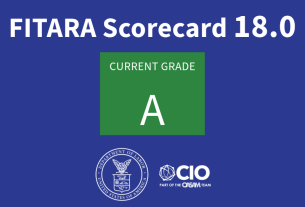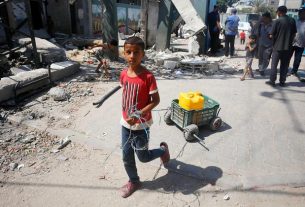LIMA, Peru — A relatively peaceful, if abrupt, transfer of presidential power in Peru last week has shifted into violence and unrest as supporters of the outgoing president intensify claims that his ouster was illegal and have staged attacks against police stations, courthouses, airports, TV network studios and journalists.
Many protesters are demanding new elections as quickly as possible, while the leaders of several Latin American countries have thrown their support behind the former president, Pedro Castillo, who remains in custody and claims that he is being unfairly detained.
At least seven people have died in the clashes, according to Peru’s ombudsman’s office, with all of the dead appearing to be protesters, among them several teenagers.
Amnesty International and local human rights groups have accused the police of responding with excessive force in some cases, and Amnesty said it had verified images of police officers firing tear gas canisters from close range directly at protesters in a main plaza in the capital, Lima.
A police general, Óscar Arriola, said that 119 police officers have been wounded.
On Monday evening, several nations whose left-wing presidents have allied themselves with Mr. Castillo, Peru’s first leftist president in more than a generation, issued a joint statement calling the outgoing president “the victim of undemocratic harassment” and calling on people to respect the “will of the citizens” who voted him in.
What to Know About the Ousting of Peru’s President
Who is Pedro Castillo? The left-wing Peruvian president was elected in 2021 after campaigning on a promise to address the country’s chronic inequality. But in less than a year and a half in office, Mr. Castillo has been plagued by corruption scandals. Peru’s Congress voted to oust him after critics accused him of attempting a coup.
The statement, issued by the governments of Colombia, Bolivia, Argentina and Mexico, called Mr. Castillo “president” and made no mention of the country’s new leader, Dina Boluarte.
Last year, Mr. Castillo, a former schoolteacher and union activist, was elected president in a narrow vote, vowing to address poverty and inequality. His motto — “no more poor people in a rich country” — energized many rural farmers in a deeply unequal nation where the urban elite vehemently opposed his candidacy.
But he was quickly accused of corruption, incompetence and mismanagement, cycling through at least 80 ministers in 18 months. Last week, facing a third attempt by Congress to impeach him, he announced plans to dissolve the legislative body and create a new emergency government that would rule by decree.
Mr. Castillo’s job had been made difficult by a Congress that seemed bent on ousting him. But his announcement was widely condemned as a coup attempt with many members of his government resigning en masse. In a matter of hours, he was impeached by Congress and arrested, while the vice president, Ms. Boluarte, was sworn in as the country’s new executive.
The events happened at such dizzying speed that many Peruvians struggled to understand what was happening.
Now, many of Mr. Castillo’s supporters, particularly in rural areas that form his base, are responding, saying they feel robbed of their vote.
The protests are backed by the largest federation of labor unions, the largest association of Indigenous people in the Peruvian Amazon and many organizations representing poor farmers, among other groups.
So far, no one leader has emerged.
The protesters have made various legal arguments for why Mr. Castillo’s removal was unlawful, and they are calling on Ms. Boluarte to move up new elections.
The new president, who called for national unity as she was sworn in last week, has already said she will try move the next presidential election up by two years, to 2024.
But that effort will need approval from Congress.
Authorities have arrested Mr. Castillo, with the prosecutor’s office said it had directed his arrest on charges of “rebellion.”
Appearing at his second court hearing on Tuesday, Mr. Castillo said that he had been unfairly detained arrested and that he would “never resign.”
“Nor will I abandon this popular cause that brought me here,” he said, before calling on authorities to “stop killing these people who are thirsty for justice,” a reference to the protesters.
When a judge interrupted to ask if he wanted to say anything in his defense, Mr. Castillo responded: “I have not committed the crime of conspiracy or rebellion.”
Peruvian authorities closed at least two airports amid the protests, including the airport in Cusco, which is used by tourists visiting Machu Picchu and the surrounding region known as the Sacred Valley, an important source of income for the country.
Train service to and from Cusco and Machu Picchu has also been suspended, according to a travel alert from the United States embassy in Lima.



